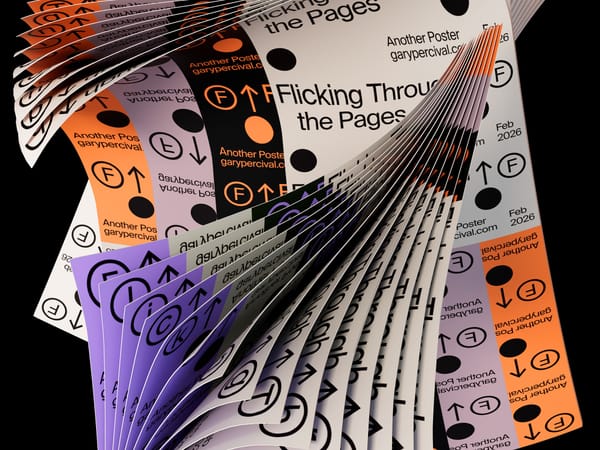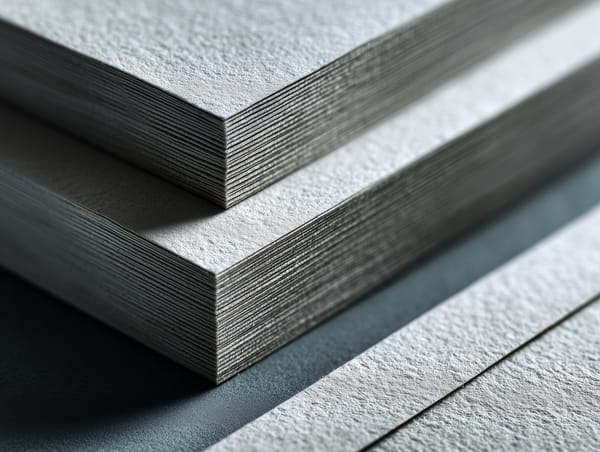Quick Clicks, Slow Regret
“You gave them your time before you gave yourself time.”
Two weeks ago, I shared some thoughts on how impatience quietly drains creative progress.
This week, I want to zoom in on one of its sneakiest forms: the quick click.
In our freelance and creative world, speed is often celebrated.
Fast response times. Fast feedback. Fast file delivery. Fast turnarounds.
We’re trained to believe that faster equals better. That moving quickly signals professionalism. That responding immediately shows commitment.
And sometimes, it does.
But other times—often the ones that matter most—those quick clicks come back to bite us.
The False Halo of Speed
A rushed proposal.
A hastily priced quote.
An email sent in frustration.
A design uploaded before you sat with it.
A project accepted before you had time to think it through.
In the moment, the fast response feels efficient. Assertive. Responsible, even.
But speed can be a smokescreen.
Behind it, we avoid discomfort. We dodge the hard questions. We skip the part where we pause long enough to ask:
“Is this actually the right move?”
That’s when quick clicks turn into slow regret.
Freelancers Know This Feeling Too Well
You said yes to a client before you fully understood the brief.
You agreed to a rate that now feels like a trap.
You posted work and later wished you’d reworded that caption.
You sent final files, only to spot a glaring mistake the next morning.
It’s not that speed is the enemy.
But blind speed? That’s where regret lives.
We don’t always need more time—we need more awareness in the time we already have.
Slow Down Where It Matters Most
Here’s where creatives often need to hit pause:
- Pricing: Don’t rush a quote just to seem responsive. Pricing reflects value, boundaries, and confidence. Slow down and consider the scope, timeline, and risk.
- Client Responses: Got a tricky email? Write your reply—but don’t send it right away. Give it an hour. Reread it with fresh eyes. You’ll likely tweak something—and avoid a future headache.
- Accepting Work: Every new project is a commitment. A quick “yes” can eat into weeks of your life. Ask: Does this align with where I want to go?
- Posting Work: That caption. That hashtag. That tone. Online, your words travel fast—and stick. What feels clever today might feel cringey tomorrow. Don’t over-polish, but give it a second look.
- Creative Edits: Some of your best work comes from small decisions made in stillness. Don’t rush to “final.” Sit with it overnight. Let your intuition do some quiet work.
The Ego Behind the Speed
Sometimes we rush because we want to seem professional.
Sometimes we rush because we don’t want to seem difficult.
Sometimes we rush because we’re afraid we’ll lose the opportunity if we don’t reply in 3 minutes flat.
But real professionalism isn’t frantic.
It’s thoughtful.
The creatives who stand out aren’t just the fastest—they’re the ones who know when to slow down.
They show restraint, not panic.
Clarity, not chaos.
A Better Pace Builds Better Work
One of the best ways to protect your reputation—and your sanity—is to stop trying to win the speed game.
Instead, win the clarity game.
It’s not about being slow.
It’s about being clear, intentional, and honest with your energy and attention.
Think of it like design: white space matters.
In your day. In your replies. In your decision-making.
Leave room to breathe, and you’ll start seeing the regrets before they form—not after you’ve clicked.
The Quick Response Trap
Ever replied to a client instantly… then realised you committed to something you now regret?
That’s the quick-click trap.
You gave them your time before you gave yourself time.
Next time, try this:
“Thanks for your message—I’ll take a look and get back to you shortly.”
That buys you space.
Time to think.
Time to ask the right questions.
Time to protect your future self from getting dragged into a project or agreement you’ll later resent.
Moving fast can feel efficient, but the creative work you’re proud of rarely comes from panic.It comes from clarity. Boundaries. Awareness.
If you want to build something meaningful, give yourself the space to respond—not just react.
👉 Don’t trade clarity and trust for the illusion of speed.
🌀 What’s the last decision you rushed—just to be quick?
What might have changed if you gave it 10 more minutes?
Final Thought
There’s a time for instinct—and a time for intention.
Some of your best creative decisions will come from a gut feeling.
But even those deserve a moment of stillness to ask:
Is this true? Is this mine?
Next time you feel the urge to reply fast, say yes fast, post fast, or finish fast—pause and ask:
Am I doing this from clarity or compulsion?
Because in creative work, the regrets rarely come from moving too slowly.
They come from moving too fast, for the wrong reasons.
Until next time—be intentional, give yourself room to pause, and trust that slowing down isn’t falling behind.
—Gary
P.S. Missed the earlier piece? Impatience Is Costing You More Than You Think explores the emotional cost of rushing creative progress.



